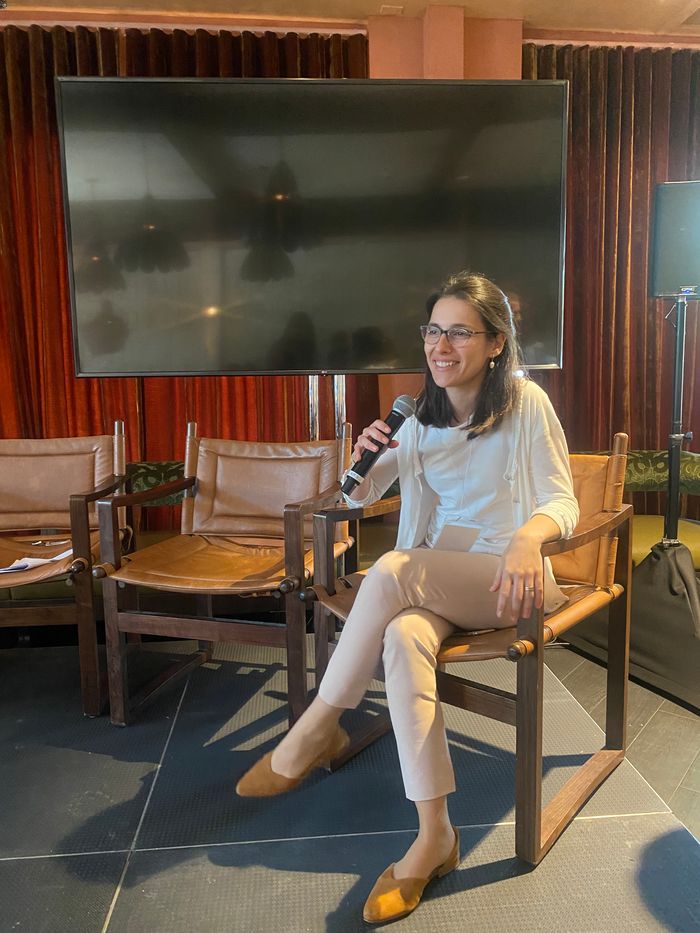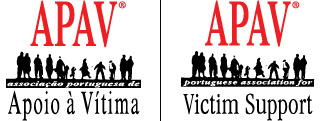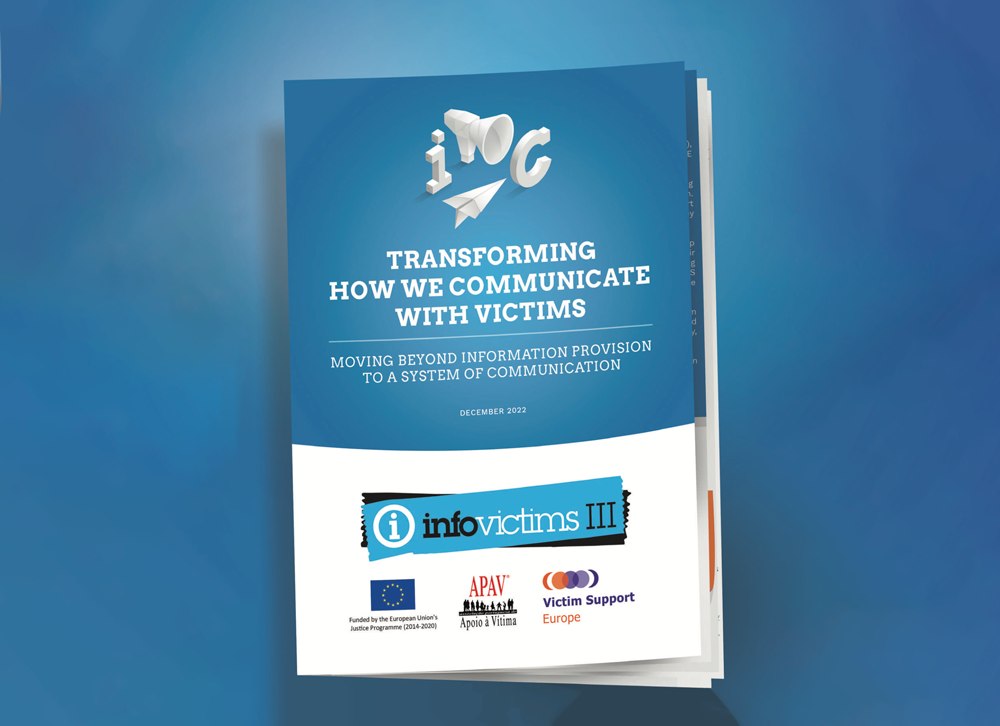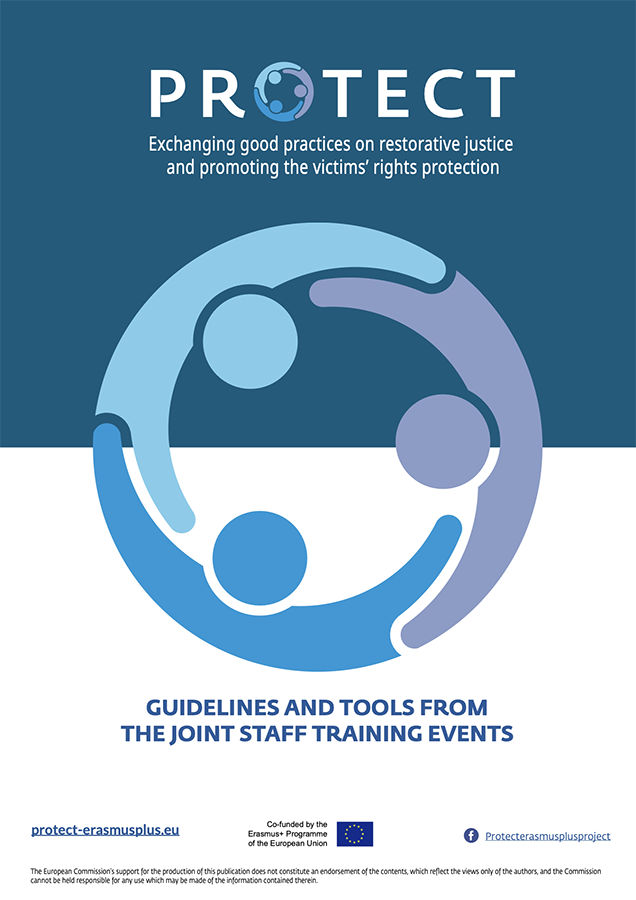
“Transforming how we communicate with victims”: new VSE policy paper aims to strengthen victims’ access to information
Victim Support Europe’s (VSE) Executive Director Levent Altan stated that while a new policy paper, developed under the INFOVICTIMS III project which is coordinated by the Portuguese Association for Victim Support (APAV), is ‘an excellent step towards bettering the lives of victims’, attitudes must change’.
Statements from European crime victims show that many still struggle to access and receive information that is both clear to understand and adapted to their needs, whether they are looking for assistance immediately after the crime or during criminal proceedings.
“I got this letter [from the court] and I went there but I didn’t understand, so I asked. ‘You should know what you are here for. Read the letter and decide what you want to do. Whether you want to sign or not.’ And I was like, I don’t know. […] ‘You should know.’ And I signed it. [The court clerk explained] nothing, nothing, he said nothing.” (Victim, Portugal)
Victims often experience loss, injury, and trauma following a crime. However, if they are not offered information on how to access support or justice or if they are given inappropriate, inadequate or overly complex information, there is a high risk that they will experience additional distress or trauma, which may lead victims to feel excluded from the justice system.
In 2012, the EU Victims’ Rights Directive established a clear set of rights on the provision of information to victims of crime; these rights include – among others – the right to receive information about their case, and to access translation and interpretation services.
However, despite the progress made, victims still find it difficult to access or receive information they can understand and act upon. VSE’s preliminary findings from the BENEVICT project, which examined the implementation of the Victims’ Rights Directive across the 27 EU Member States, indicates that, as of 2023, “even though the obligation to provide all these instances of information is brought forth in the national legislation of almost all Member States, victims do not receive full information or receive information that is not comprehensible”.
VSE’s Levent Altan has hailed as “an excellent step” the new policy paper which offers practical guidance, to governments and stakeholders working with victims, on ensuring information is properly communicated to victims.
“Information is at the heart of both safe justice and effective support for victims of crime. It allows victims access services and legal restitution and helps prevent secondary victimisation. While some progress has been made over the recent past, we can see that current mechanisms for information provision do not work and fail to address the needs of victims. This means that a shift in how we approach and implement information rights is needed”, confessed Altan. “The challenges observed prevent victims from effectively understanding, and acting on, the information given to them. We must move beyond simply providing information, to truly communicating with victims”.
This new policy paper aims to examine these challenges and look at effective solutions. Its recommendations include the provision of guidelines, for professionals and others, on communicating with those who have fallen victim to crime; the development of practical solutions, e.g. online platforms which allow victims access information about their case; and the development of a systemic approach to information provision, through use of a communication framework.
Frederico Marques, from the Portuguese Association for Victim Support (APAV), which coordinated the INFOVICTIMS III project, said: “We must change people’s attitudes and ways of thinking. The provision of information to victims is often seen as an obligation, an administrative burden, and its impact on victims, their recovery and their participation in proceedings is often underestimated. Approaching information rights from a communications perspective allows us to focus on information being understood by the victims, information which must be processed and then used. This shift in thinking is imperative, if we want to achieve better access to support and justice systems.”
While our justice systems have taken years to evolve, criminal proceedings are still perceived as being complex and unfamiliar, often leaving victims feeling excluded from a process that impacts their lives and their experiences.
“Many things I didn’t know before, such as […] about compensation, having a look at the case file, a lawyer. So, I would have definitely wished for more information on these things.” (Victim, Germany)
To achieve effective change, information provision must be integrated within a broader communication system which focuses on how and whether information is understood, which defines what information should be shared with victims, how and by whom, which establishes quality standards as well as a framework and mechanisms to ensure its coordination.
“Many police officers, and members of other authorities working with victims, do their best to inform and support victims of crime. The problem is that the quality of the information depends on the individual delivering it, on their training, their ability to communicate and their sensitivity to victims’ issues. This results in a fragmented system which delivers inconsistent information and offers an unequal service to victims, depending on where they are or who they talk to.” admits Altan.
Altan stressed the importance of integrating a communication framework within a broader National framework for comprehensive victim support that could coordinate the actions and responses of different sectors that play a role in victims’ recovery.
He said: “Now that the paper ‘Transforming how we communicate with victims’ is published, VSE’s priority will be to make our recommendations a reality. A first step is to make sure that the European Commission publishes the revised Victims’ Rights Directive, with stronger information rights for victims and related obligations for Member States, as soon as possible.
We must work with national governments and other organisations to ensure they understand our recommendations and implement them. While alterations to the law are fundamental to life, a greater shift is needed to transform ‘on the ground’ practices and to help those implementing them; to change the lives of victims.”
Policy paper: “Transforming how we communicate with victims” ![]()
PROTECT | Guidelines and Tools from Staff Training Events
APAV shares the new Guidelines and Tools from Staff Training Events, developed by the Olga Kiseleva and Claudia Christen-Schneider, from the European Forum for Restorative Justice, under project PROTECT: Enhancing good practices on restorative justice and promoting victims' rights protection, co-funded by the Erasmus+ Programme of the European Union.
This guidelines offer professionals from victim support and restorative justice services a trauma-informed framework to the process of assessment of victims needs. Whether suffering from trauma or not, this approach may serve to create a safe space where victims find it easier to identify and express their needs.
APAV, in the quality of partner of project PROTECT, invites you to read the guidelines.
Guidelines and Tools from Staff Training Events ![]()
Joint statement by Victim Support Europe and its Members on 116 006, the European Victim Support Helpline
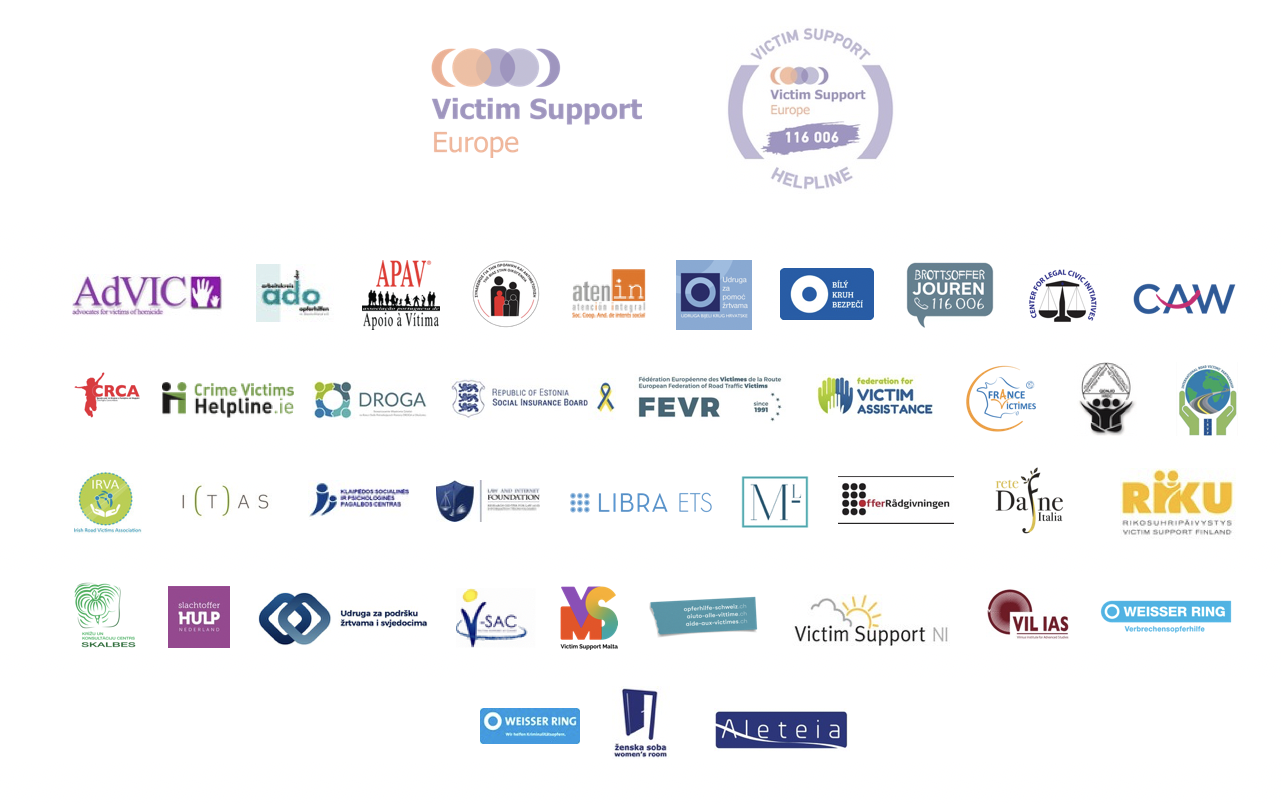
116 006 has been a dedicated European helpline for victims of crime since November 2009. However, almost 15 years later, this number is only in use in 13 countries.
We need your help – victims need your help – to ensure 116 006 is available in every EU Member State! No victim should be forgotten about or left behind. The number is easy to remember, and allows all EU citizens at home or abroad to quickly reach help after a crime.
All victims of crime must have access to this helpline; without access to 116 006, tens of thousands of victims feel alone and unheard, unable to take that first step towards recovery and justice. Where helplines are available, demand for assistance is huge: 63.330 calls in the Netherlands, 41.630 in France and 20,882 in Germany in 2022. Thanks to the trained call handlers, thousands of European citizens, who have fallen victim to crime, have been able to receive information and support when they’ve needed it most.
However, some victims have difficulty getting someone to listen to them and helpline call handlers are often the only people victims speak to after a traumatic event. Thus, 116 006 helplines, run primarily by NGOs which provide victim support services, are key to ensuring victims receive appropriate information and support, and that they are referred to the services they need most.
In 2022, EU Commissioner for Justice Didier Reynders and Eric Dupond-Moretti, Keeper of the Seals, French Minister for Justice called on all EU Member States “to make use of the 116 006 helpline for the benefit of their citizens, in the conviction that it is a necessary tool for providing information and care to victims.”.
Since then, no further 116 006 helpline have been made available in EU Member States. Neither Belgium, Bulgaria, Cyprus, Greece, Hungary, Italy, Lithuania, Luxembourg, Malta, Poland, Romania, Slovakia, Slovenia nor Spain offer their citizens a 116 006 helpline. If a missing children’s helpline – 116 000 – is available in every country, why is there not a helpline for victims of crime?
Through amendments to the EU Victims Directive, we call on the European Commission, Council and Parliament to make the 116 006 helpline a requirement in all EU States, and to support Member States through EU funding, following the approach for the missing children helplines. Proper funding for new and existing helplines is essential. Increases in helpline funding see an immediate increase in helpline use.
We call on all EU Member States to help victim support organisations to set up 116 006 helplines for all victims of crime.
Time is of the essence – 4000 homicides, around 200,000 sexual violence crimes, more than 600,000 assaults – take place each and every year, and the list of other crimes is much longer. 15% of Member State populations become victims every year: these are people you know – family, friends, colleagues.
Without your help, many victims will struggle to find support and recovery. Join us in demanding action from the EU and Member States. To fail to do so, is to fail victims.
APAV establishes protocol with WYD Lisbon 2023
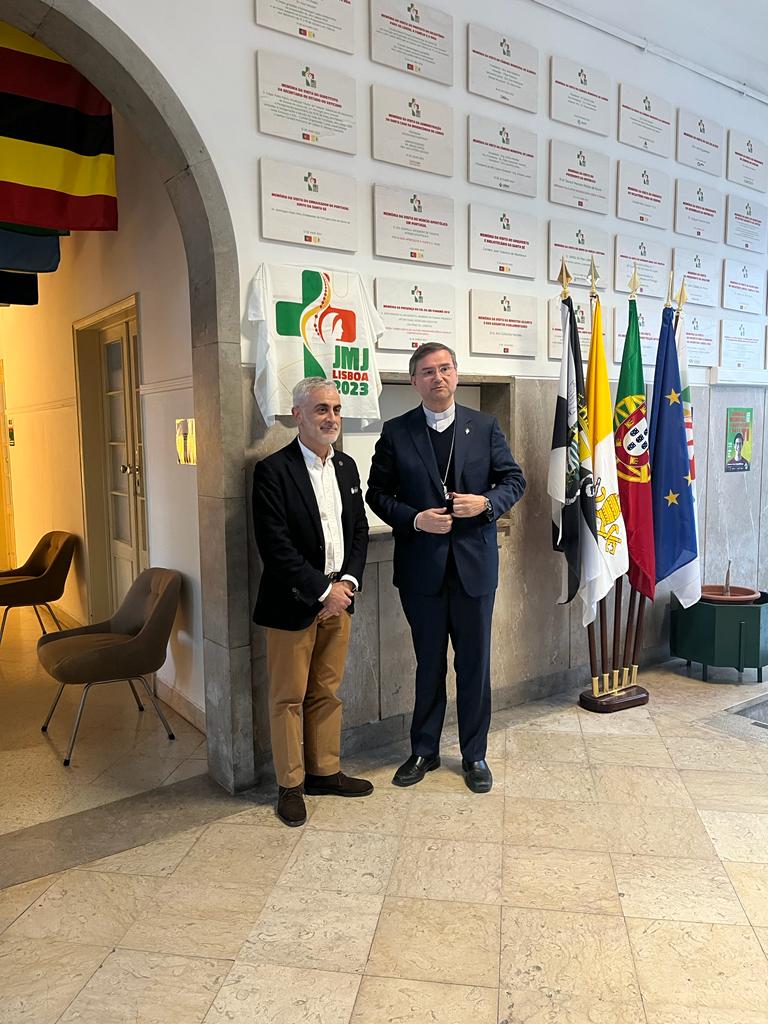
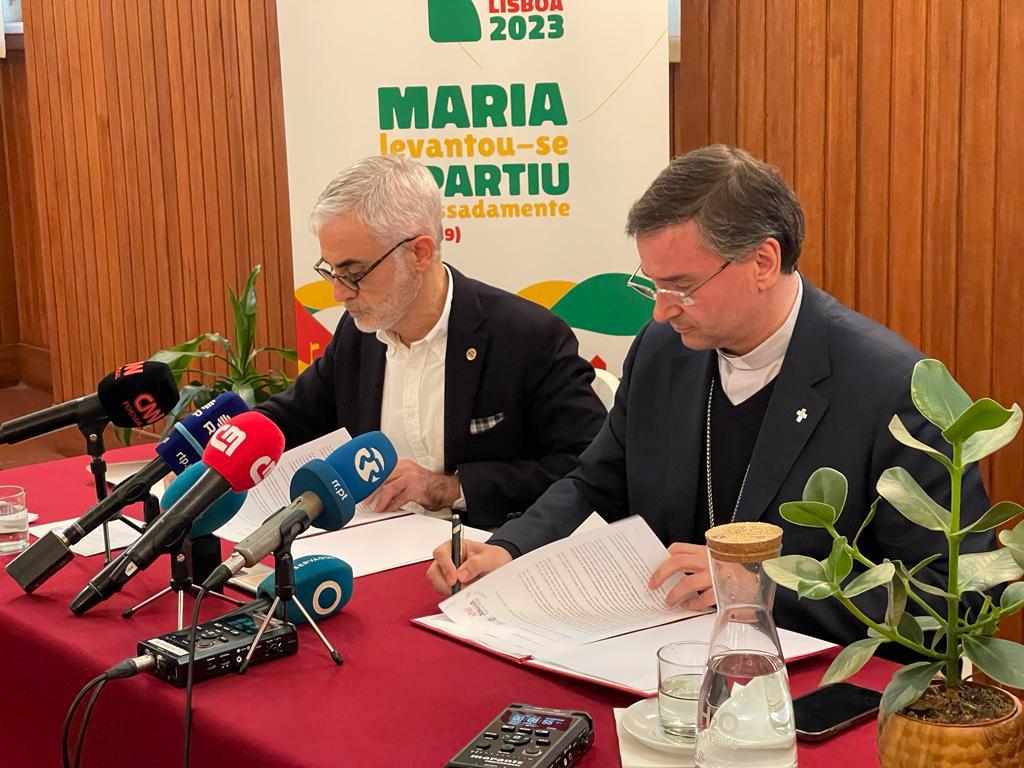
Photos: Ricardo Perna / JMJ Lisboa 2023
On 2 March, the Portuguese Association for Victim Support (APAV) and the World Youth Day (WYD) Foundation signed a cooperation protocol with the aim of planning, monitoring and building synergies that prevent and anticipate the readiness of response to any incidents that may occur before and during the largest gathering of young people from around the world with the Pope.
The protocol provides, as João Lázaro revealed, "a whole follow-up and a strategic partnership in the area of prevention, training and capacity building", since APAV will have a Victim Support Centre at the WYD Lisbon 2023 venue and a Mobile Victim Support Team, with technicians available to travel and provide, whenever necessary, support services to pilgrims. Specific training will also be given to the various teams of the Local Organising Committee and to all the volunteers who will be at work during the week of WYD Lisbon 2023.
In addition, during WYD Lisbon 2023, there will also be a reinforcement of the Victim Support Helpline - 116 006.
Safer Internet Helpline attends Global Summit on Sexual Abuse Based on Intimate Images
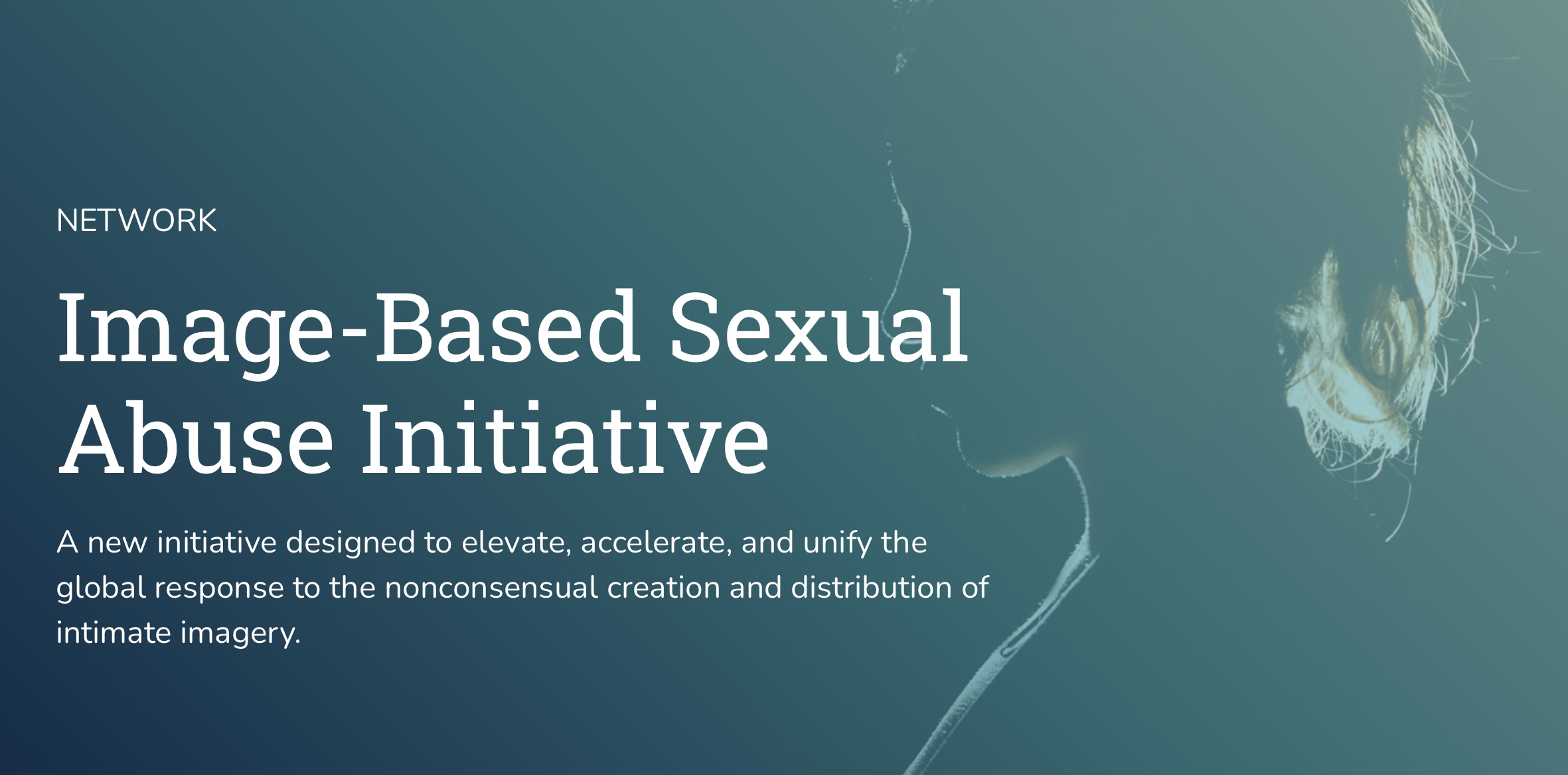
The Safer Internet Helpline, represented by Carolina Soares, participated from 22 to 24 February in the Global Summit on Image Based Sexual Abuse in Miami, Florida, having been invited to participate in the panel "Hotlines and Helplines: Global Examples and Impact".
These were two intense days of work aimed at producing a shared vision and a global action plan built through the knowledge of experts, academics, government actors and victims.
An abridged version of I Didn't Consent: A Global Landscape Report on Image-Based Sexual Abuse was also published. The Safer Internet Helpline, explaining the work it has been doing, contributed to the construction of this report, which aims to raise awareness and deepen understanding of what intimate image-based sexual abuse is, how quickly it can damage the real lives of those whose consent, autonomy and rights have been violated, and offer multiple avenues in how we can - and should - work together to end this sexual abuse.
This summit and report are just the beginning of efforts to elevate, accelerate and unify the global response to the non-consensual creation and distribution of intimate images.
